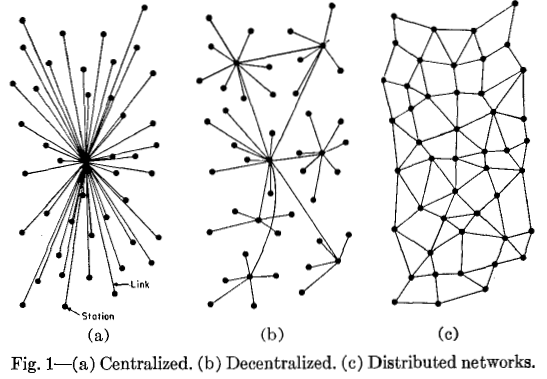
The Evolution of Decentralization
Decentralization, a transformative concept, has reshaped how we perceive and interact with systems. From finance to technology, understanding the evolution of decentralization is key to navigating the shift towards more inclusive and resilient structures.
Decentralization Defined
Decentralization refers to the distribution of power, authority, and decision-making across a network rather than being concentrated in a central authority. This concept challenges traditional hierarchical models, offering a more democratic and resilient approach to organizing systems.
Blockchain Technology: A Pioneer of Decentralization
Blockchain technology stands out as a pioneering force in the realm of decentralization. By utilizing a decentralized ledger and consensus mechanisms, blockchain eliminates the need for central authorities in validating and recording transactions. This not only enhances security but also fosters transparency and trust within the network.
Decentralization in Finance: The Rise of DeFi
Decentralization has had a profound impact on the financial sector through the rise of Decentralized Finance (DeFi). DeFi platforms leverage blockchain technology to offer financial services without traditional intermediaries. This not only provides greater financial inclusion but also challenges the established norms of the banking industry.
Empowering Individuals: Peer-to-Peer Networks
Decentralization empowers individuals by promoting peer-to-peer networks. From file-sharing to communication platforms, decentralized networks enable direct interactions between users, reducing dependence on centralized services. This shift towards user-centric models enhances privacy and control over personal data.
Challenges and Opportunities in Decentralization
While decentralization brings numerous benefits, it also poses challenges. Issues such as scalability, governance, and interoperability need careful consideration. However, these challenges present opportunities for innovation and the development of solutions that further strengthen the decentralization movement.
The Role of Cryptocurrencies in Decentralization
Cryptocurrencies, led by Bitcoin, have been at the forefront of the decentralization movement in finance. These digital currencies operate on decentralized blockchain networks, offering an alternative to traditional fiat currencies. Cryptocurrencies challenge the existing financial system and promote financial autonomy.
Decentralized Autonomous Organizations (DAOs)
Decentralized Autonomous Organizations (DAOs) exemplify the potential of decentralization in governance. DAOs are organizations run by smart contracts on the blockchain, enabling decentralized decision-making and resource allocation. This innovative approach enhances transparency and reduces the risk of corruption.
Decentralization in the Internet of Things (IoT)
The Internet of Things (IoT) is undergoing a transformation through decentralization. By integrating blockchain technology, IoT devices can communicate and transact directly, eliminating the need for centralized servers. This not only improves efficiency but also enhances security in the IoT ecosystem.
Future Trends: Decentralization Unleashed
As decentralization continues to evolve, future trends hold exciting possibilities. From the integration of decentralized identity solutions to the adoption of decentralized storage and computing, the trajectory of decentralization is poised to redefine various industries and reshape our digital experiences.
To explore further into the world of decentralization, visit Decentralization for additional resources and insights. Embrace the shift towards more equitable and resilient systems that decentralization promises.



